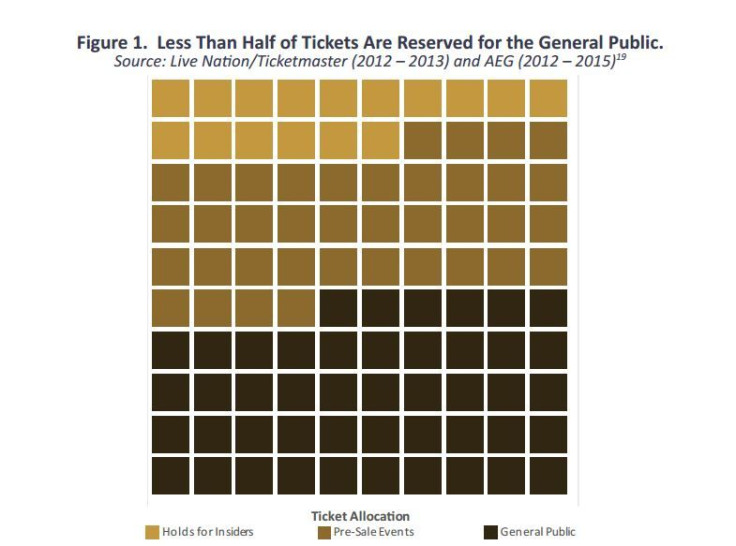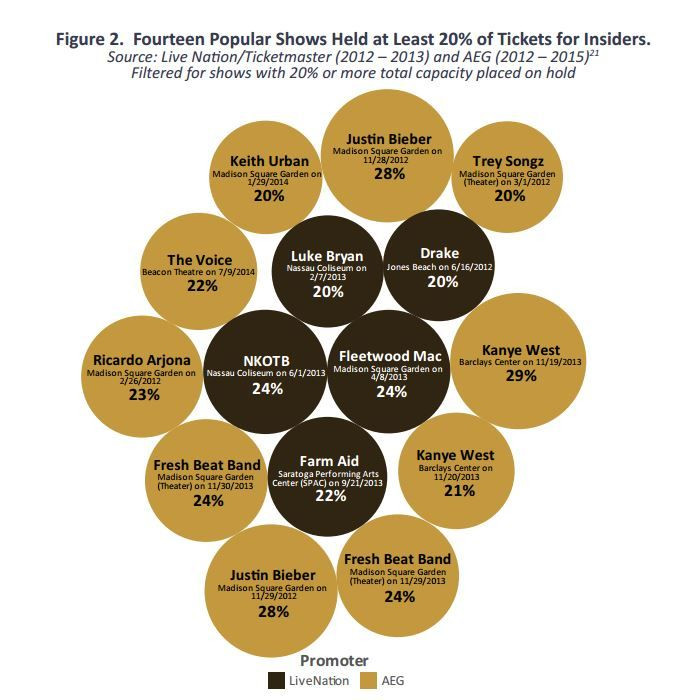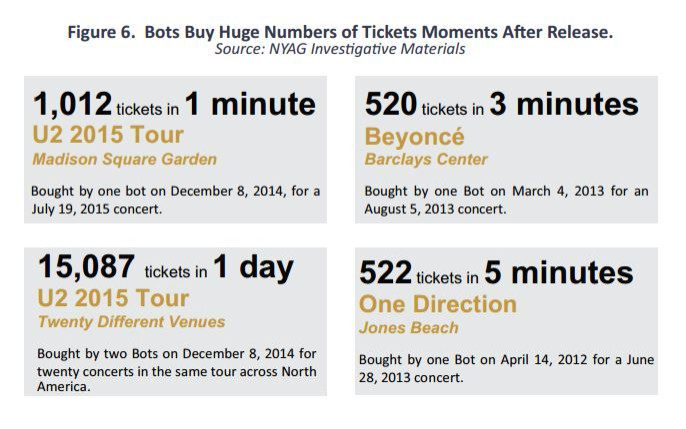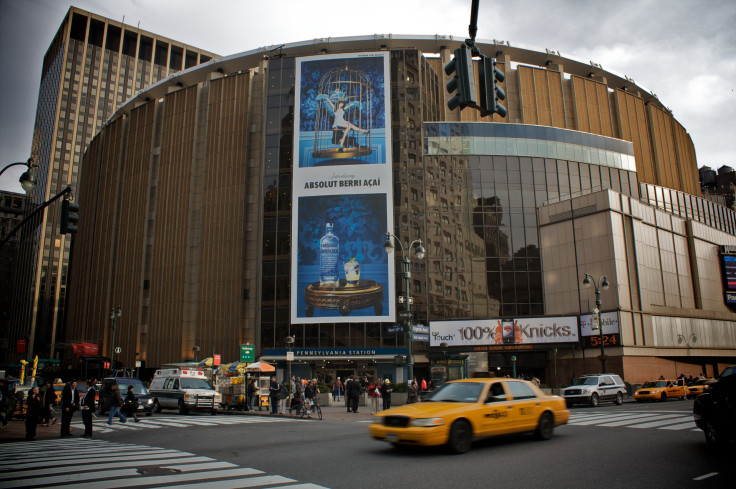You’re sitting at your desk, counting down the minutes and seconds until you can click “purchase.” When the on-sale time hits, you refresh your browser to score tickets to your favorite band, a stand-up show or sporting event but for some reason tickets aren’t available. It’s already sold out?
This ever-growing problem was the focus of a press conference held Thursday that coincided with the release of a report from New York Attorney General Eric Schneiderman
“That’s what we call a rigged system… a playing field that’s not level,” Schneiderman said Thursday about consumers buying tickets.
He said there are three main issues for this phenomenon.
On average, only 46 percent of tickets for concerts and other events are actually reserved for the general public when tickets first go on sale. Among top grossing shows in New York, 16 percent of all tickets were reserved for industry insiders. Other tickets are reserved for credit card and fan presales.


Due to ticket brokers using illegal bots and other methods, the state report said the average ticket price sells for nearly 50 percent more than face value.
Fees attached to tickets prices, from venues and vendors like Ticketmaster, add an average surcharge/fee by more than 21 percent
If you were to check ticket reselling sites (like StubHub) shortly after an event sells out you’ll see there could be hundreds, if not thousands of tickets already on sale with prices marked up considerably. That, Schneiderman said, is due to illegal brokers and ticket bots.
“It took a single bot in one minute to buy 1,000 tickets to a U2 concert at MSG last summer,” Schneiderman said Thursday at a press conference. “Even Pope Francis whose events were all to be free, could not escape tickets sold to his event for profit. Scalped tickets for the Pope is about as low as you can get.”

Schneiderman and his panel of stakeholders who presented the report Thursday said the laws protecting consumers have not kept up with the technology and entertainment industry
“I've been in the live music and events business for twenty years and over that time I've seen technology have a positive impact on our industry. With the good has also come the bad and the ticket bots are a very real problem for both producers and consumers,” said Donny Kutzbach of Funtime Presents/Town Ballroom, in a statement. “I’ve seen bots manipulate the system, hold tickets and ultimately lock average consumers out of the ticket buying process. It’s unfair,
To combat the growing problem, Schneiderman said it will be up to businesses to voluntarily help police the problem, rope-in the legislature to make the laws more consumer friendly and give authorities the ability to go after brokers breaking the law.
Schneiderman’s proposal includes removing the price floor, which means some events don’t allow for the resale price to be below face-value even if the event is not in high-demand. He also wants to get rid of is the price ceiling. Instituted in NY State in 2010, Schneiderman said the removal of the price cap was designed to lower costs but has done the exact opposite. Tickets, he said, should be limited to a percentage over the face-value cost of a particular ticket.
“These (price floors) defeat the whole purpose of the open market by keeping prices artificially high,” Schneiderman said. “The lack of a price cap is having a significant effect on prices.”
He said laws have the ability to impact second-hand prices, hold vendors accountable for 'service fees' and force vendors to watch out for bots purchasing tickets. Current laws already prohibit the use of bots and speculative price but both practices are rampant in the industry.
In terms of ticket fees, Schneiderman said ticket vendor fees are much higher than other online retailers.
“... Most of the online platforms we examined charge no ‘general’ fees to consumers for the sale of tickets or goods and post prices that already reflect the full cost to the consumer,” Schneiderman said in his report. “That is true of Amazon and Etsy, and it is also typically true even of vendors of airline tickets, like Expedia and Priceline. The main exceptions are the sites that sell movie tickets, because those vendors charge consumer fees that are close in magnitude to the average fees charged in live event ticketing. Fandango, for example, charges moviegoers a “transaction fee” between 75 cents and $2.50 per ticket, and a “convenience fee” of $1.50 per ticket.”
Schneiderman said Thursday the New York state law “has been amended to require only reasonable fees for special services .. and these fees are excessive.”
Until now, Schneiderman said there hasn't been a concerted effort to require the players involved to help regulate the prices.
“This investigation is just the beginning of our efforts to create a level playing field in the ticket industry,” Schneiderman said.

















